AI-Witness
2021
-> Collective Intelligience
-> Art therapy
-> Collective Intelligience
-> Art therapy
Exploring traumatic experience in a non-threatening way.
An art-based mental health support system for refugee children aged 5–10 aiming to represent their unheard voices as a collective experience.
Project in Collaboration with:
Louise Skajem
Project in Collaboration with:
Louise Skajem

Research
When children grow up in armed conflict, their deep mental scars are often overlooked. Traumatic experiences has profound impact on behaviour, emotion, and social development that threatens a lost childhood. Often, they lack the tools to navigate through trauma.
Many of these children have experienced trauma, and might not be capable of expressing themselves through a written or spoken language. How might we offer mental health support to children who has been through traumatic experiences?
![]()

Intervention
Gathering the images is a way of gathering qualitative data for reports on refugee children's experience, whilst also raising awareness through public exhibitions of work by anonymous refugee children.
1. Collecting individual stories

2. Creating a database of collective experiences

3. Analysing data to create unified voices

4. Generative art as a visualisation of seen voices
( Images generated using DALL · E )
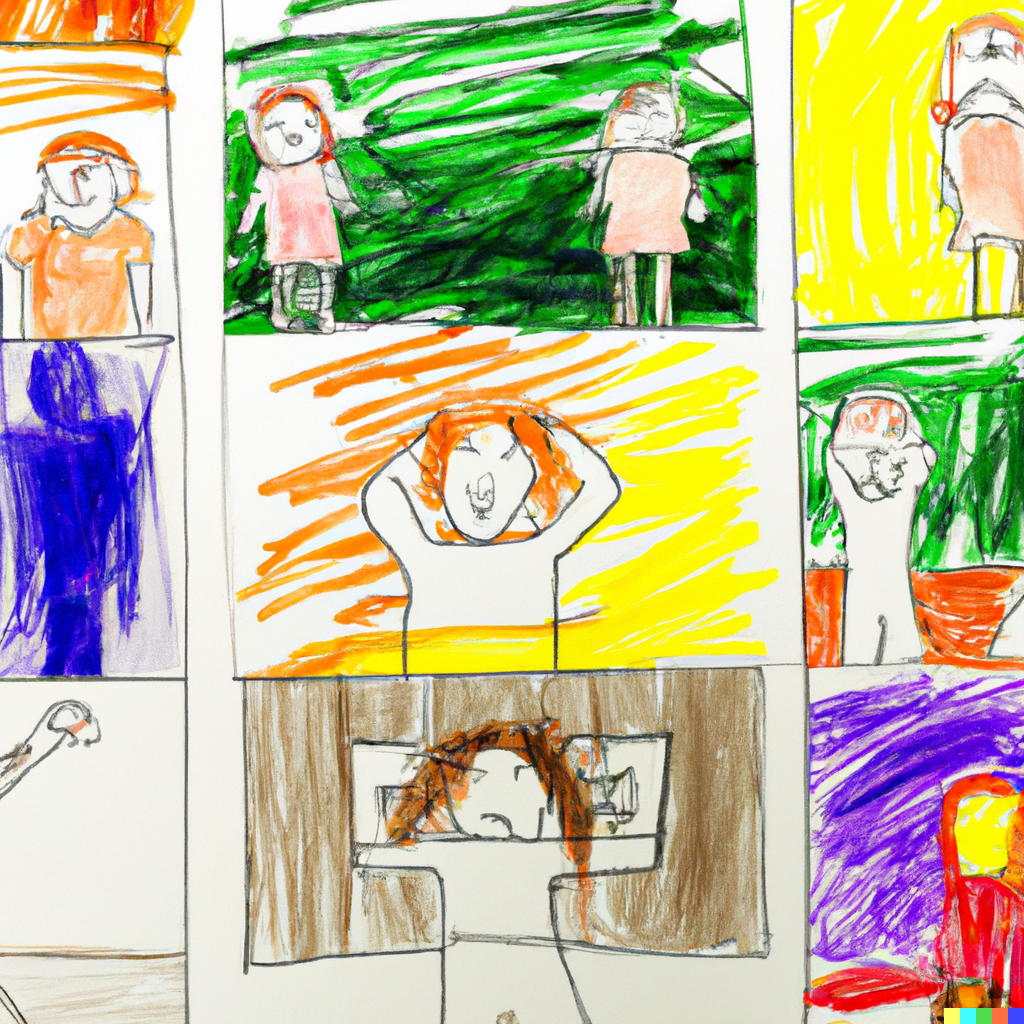
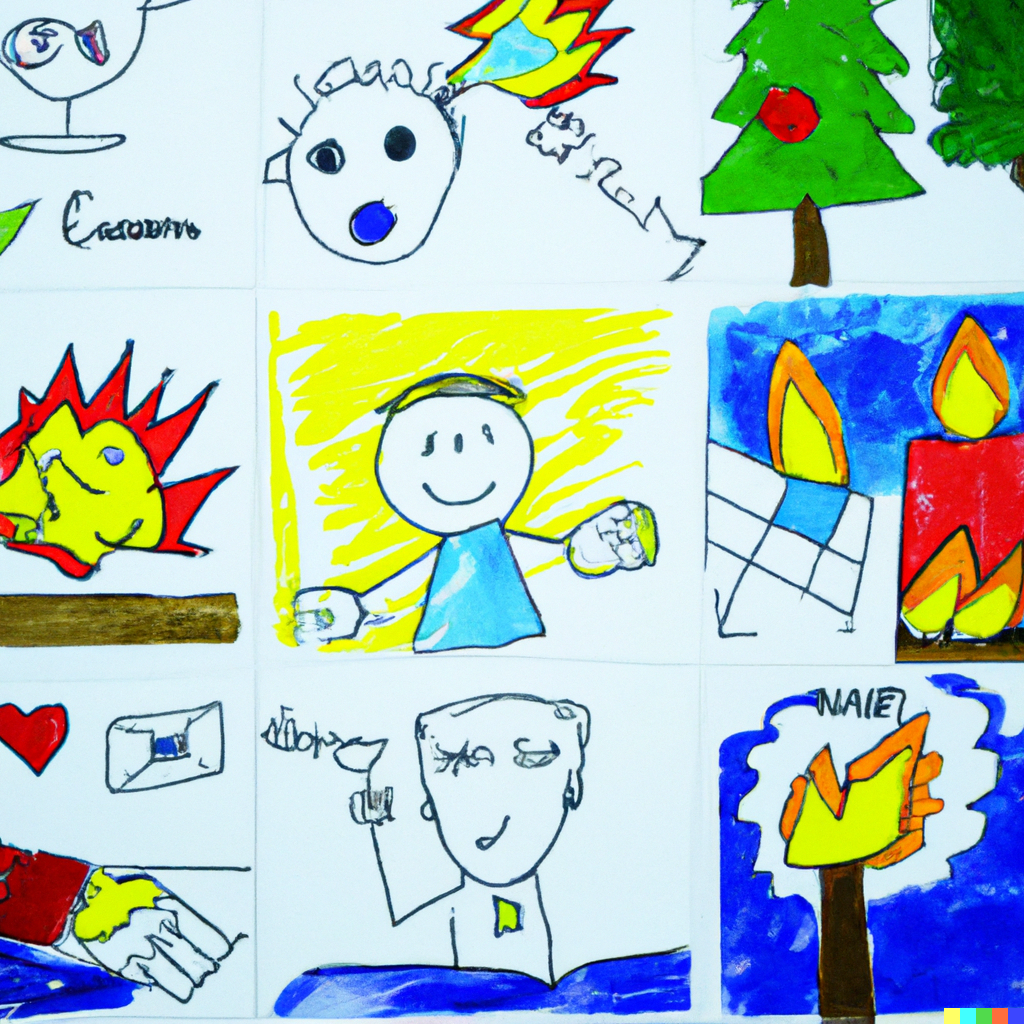
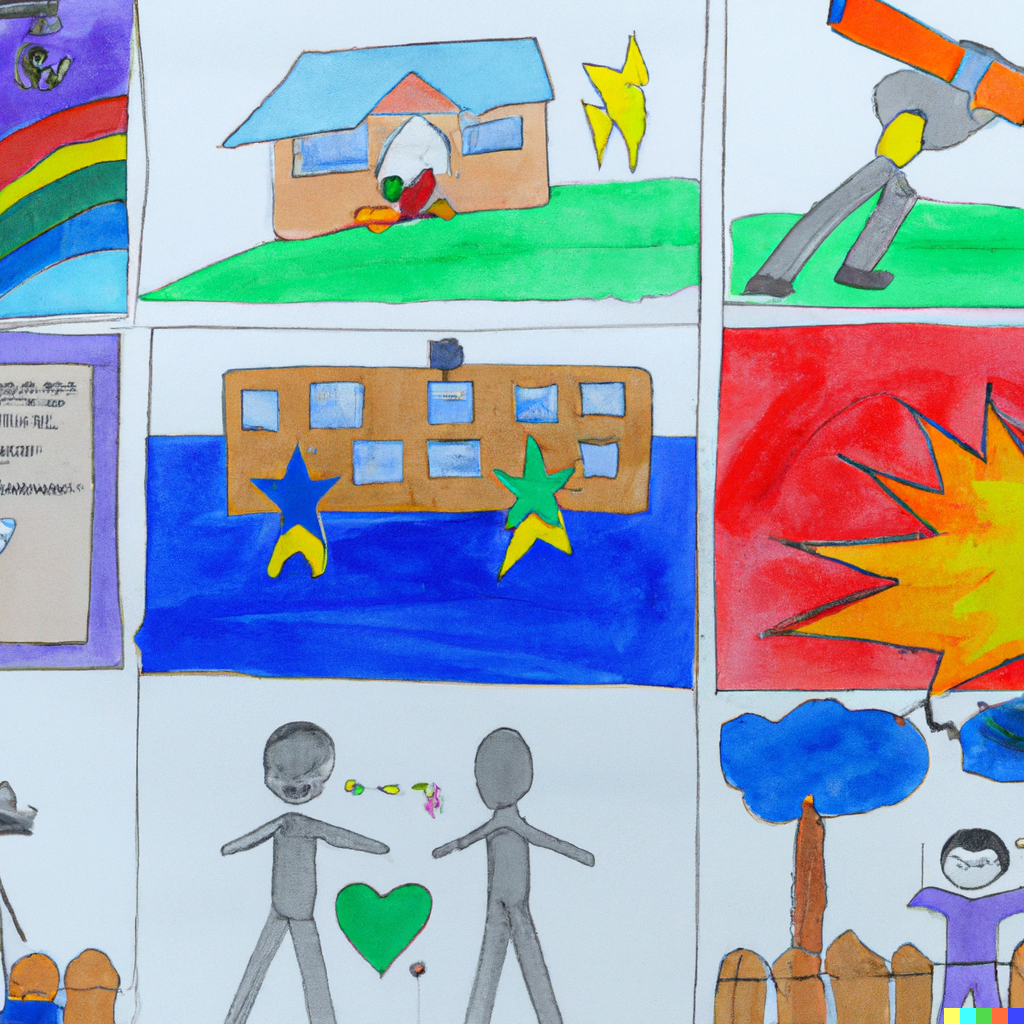
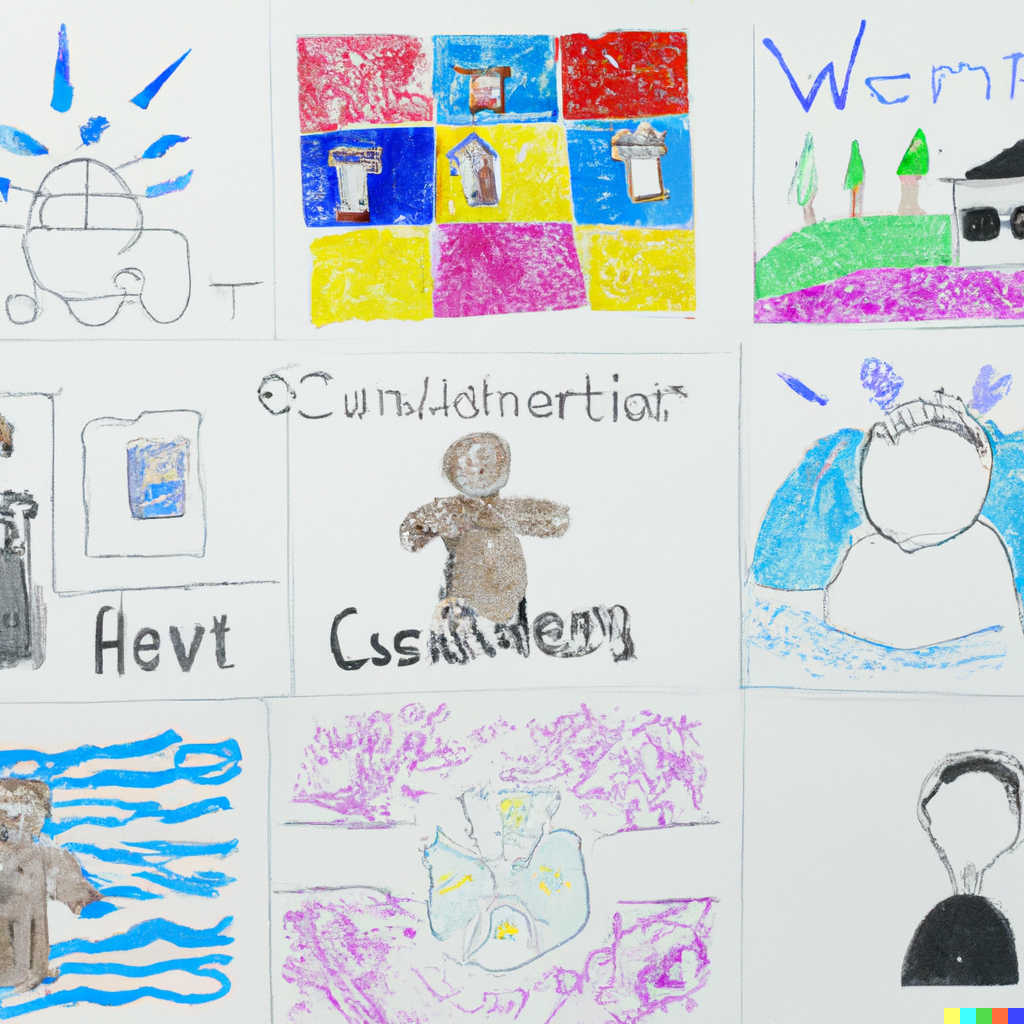






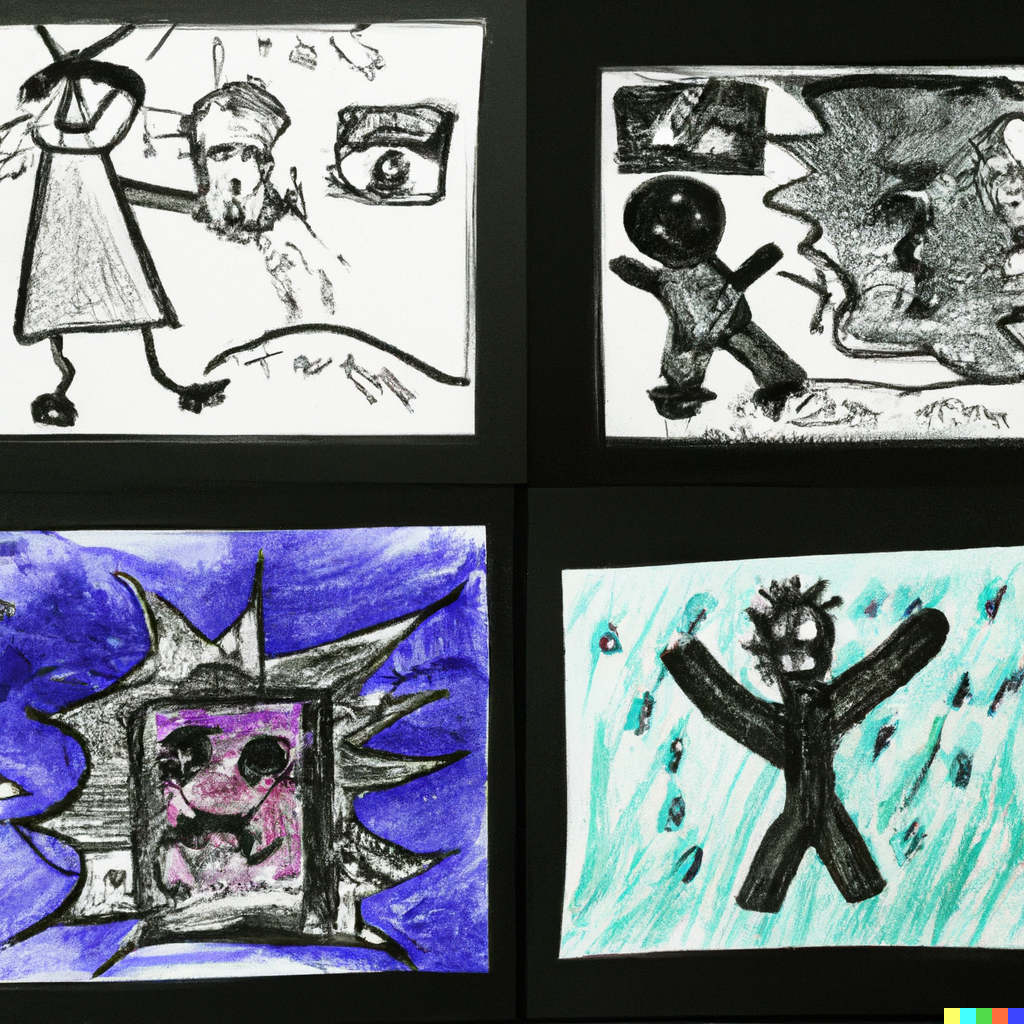

Acknowledgements
This project was in collaboration with Louise Skajem. AI-Witness was led by Senior Tutor, Dr John Stevens and and Visiting Tutor Maxim Dedushkov. With guest contributors including Professor Gareth Loudon (Head of Programme, IDE/GID (RCA)) Professor Yvonne MacDermott-Rees, Professor of Law (Swansea University), Professor Lex Paulson (Executive Director, UM6P School of Collective Intelligence), Maria Fernanda Felix de la Luz (UN Development Program) and James Maltby (Save the Children UK) Liz O’Driscoll (Head Of Innovation, Civica).